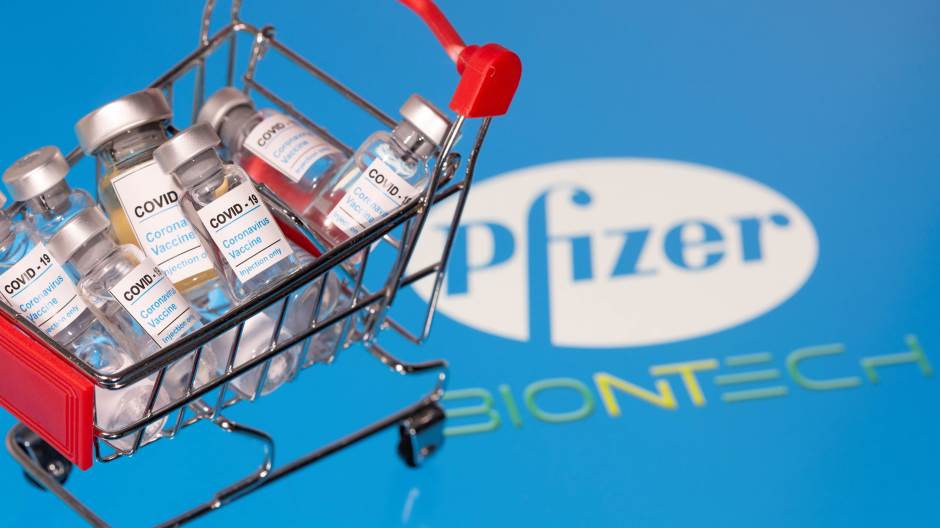
Pharmaceutical company BioNTech announced Wednesday it had agreed to supply additional 200 million doses of its coronavirus vaccine to the European Commission, which also has the option to request a further 100 million doses.
The current agreement brings the total number of vaccine Pfizer-BioNTech is slated to supply to 500 million doses, with the potential to increase to 600 million.
BioNTech CEO Ugur Sahin told CNN in December that the joint effort with Pfizer aimed to produce up to 1.3 billion doses in 2021, but on Wednesday the company announced it has increased its manufacturing capacity to two billion doses this year.
“We will initiate production at our Marburg facility this month and have strengthened our manufacturing network with additional partners,” Sahin said. “We are continuing to evaluate, together with governments, authorities and partners at all levels, how we might address an even higher future supply requirement for our vaccines.”
A study published by Israeli researchers last week suggested that Pfizer-BioNTech's Covid-19 vaccine appears to reduce symptomatic coronavirus infections by more than 90% in the real world.
The findings, while preliminary, indicated that the vaccine remains remarkably effective in a mass vaccination campaign -- outside the carefully controlled conditions of a clinical trial.
Vaccine rollout in the EU has been off to a rocky start. Despite being part of the world's biggest single market, European Union countries have vaccinated only a small fraction of their combined population of 450 million. Meanwhile Israel, the US and the UK, who were much quicker to approve Covid-19 shots, are making rapid advances in inoculating their populations. The bureaucratic lags and production issues led to growing frustration among EU residents desperately awaiting the vaccine.
The EU secured 2.3 billion doses of vaccine from six manufacturers but only three have been approved: The United States’ Moderna and Pfizer-BioNTech as well as the shot produced by UK-Swedish company AstraZeneca. The Union has been in an escalating dispute with AstraZeneca after EU officials said the company intended to supply "considerably fewer" doses than had been agreed because of production problems.
AstraZeneca responded that it was not contractually obligated to meet the EU schedule. In an interview with Italian newspaper La Repubblica, CEO Pascal Soriot said the company had not been able to guarantee the timing of EU deliveries because countries such as the United Kingdom were quicker to finalize orders.
Earlier this week Commission President Ursula von der Leyen was dragged before the European Parliament to explain herself and told to resign multiple times. She admitted to MEPs that the EU had made errors in its procurement of vaccines, saying that they had been "late with the approval" and were "too optimistic" on mass production.
Kakvo je tvoje mišljenje o ovome?
Učestvuj u diskusiji ili pročitaj komentare





 Srbija
Srbija
 Hrvatska
Hrvatska
 Slovenija
Slovenija







